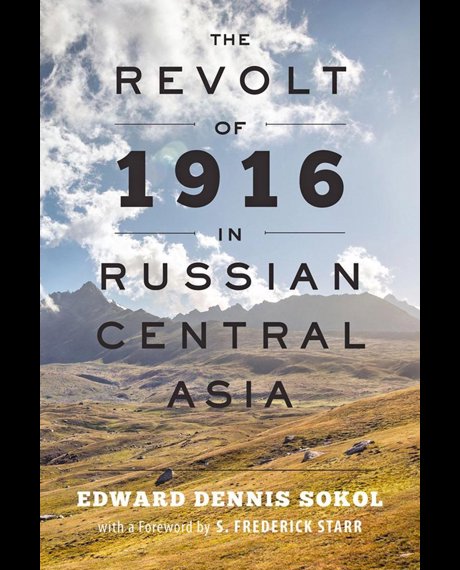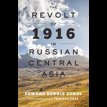The Revolt of 1916 in Russian Central Asia
The Revolt of 1916 in Russian Central Asia
€ 12,99
The classic study of resistance to Tsarist Russian colonialism, the genocide that followed, and its connection to the Bolshevik Revolution.
In 1916, Tzar Nicholas II began drafting Russian subjects across Central Asia to fight in World War I. By summer, the widespread resistance of Kazakhs, Kyrgyz, Tajiks, Turkmen, and Uzbeks turned into an outright revolt. The Russian Imperial Army killed approximately 270,000 of these people, while tens of thousands more died in their attempt to escape into China. Suppressed during the Soviet Era and nearly lost to history, knowledge of this horrific incident is remembered thanks to Edward Dennis Sokol’s pioneering Revolt of 1916 in Russian Central Asia.
This wide-ranging and exhaustively researched book explores the Tsarist policies that led to Russian encroachment against the land and rights of the indigenous Central Asian people. It describes the corruption that permeated Russian colonial rule and argues that the uprising was no mere draft riot, but a revolt against Tsarist colonialism in all its dimensions: economic, political, religious, and national. Sokol’s masterpiece also traces the chain reaction between the uprising, the collapse of Tsarism, and the Bolshevik Revolution.
The classic study of resistance to Tsarist Russian colonialism, the genocide that followed, and its connection to the Bolshevik Revolution.
In 1916, Tzar Nicholas II began drafting Russian subjects across Central Asia to fight in World War I. By summer, the widespread resistance of Kazakhs, Kyrgyz, Tajiks, Turkmen, and Uzbeks turned into an outright revolt. The Russian Imperial Army killed approximately 270,000 of these people, while tens of thousands more died in their attempt to escape into China. Suppressed during the Soviet Era and nearly lost to history, knowledge of this horrific incident is remembered thanks to Edward Dennis Sokol’s pioneering Revolt of 1916 in Russian Central Asia.
This wide-ranging and exhaustively researched book explores the Tsarist policies that led to Russian encroachment against the land and rights of the indigenous Central Asian people. It describes the corruption that permeated Russian colonial rule and argues that the uprising was no mere draft riot, but a revolt against Tsarist colonialism in all its dimensions: economic, political, religious, and national. Sokol’s masterpiece also traces the chain reaction between the uprising, the collapse of Tsarism, and the Bolshevik Revolution.
| Prijs | Verzendkosten | Totaal | |
|---|---|---|---|
€ 12,99 | € 0,00 | € 12,99 |
Alternatieve producten
© 2016 - 2024 aanbiedingchecker


/backgroundcolor(255,255,255)/jpg(90)/fetch/https://media.s-bol.com/O8OlBOBXplxB/854x1200.jpg)
/backgroundcolor(255,255,255)/jpg(90)/fetch/https://media.s-bol.com/grOmoXG5rYY/927x1200.jpg)
/backgroundcolor(255,255,255)/jpg(90)/fetch/https://media.s-bol.com/Jl348xm55xWJ/p8LG332/846x1200.jpg)
/backgroundcolor(255,255,255)/jpg(90)/fetch/https://media.s-bol.com/rKmgvrOVKYp/898x1200.jpg)